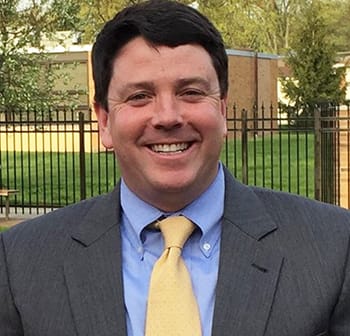Steil speaks to community about eating disorders
Rachel Steil, former NAIA All-American cross country star and author of the book Running In Silence: My Drive for Perfection and the Eating Disorder That Fed It, spoke to a captivated audience of St. Mike’s student athletes last Thursday evening in the Ross Gym at Saint Michael’s College. The talk was meant to raise awareness about eating disorders among student athletes, especially at the college level.
Steil opened her discussion with some chilling statistics. She explained that one in five runners will develop an eating disorder during their career and that eating disorders are two to three times more likely among athletes than the general population.
She broke her presentation up into three sections: first she discussed her story, then she discussed her recovery process, and closed by talking about what we can do to prevent eating disorders.
When discussing her battle with eating disorders, Steil said, “I was just existing, I wasn’t living…and it was affecting my sport.” Her drive to become faster and be better in her sport ended up being detrimental to her health. She explained that her eating disorder did not start from her sport, as it does for most athletes. Steil claims her eating disorder started after she witnessed her sister losing large amounts of weight by taking medication. She realized at this moment that she could manipulate her body weight not by exercising but by eating different foods. She became very interested, to the point of obsession, in nutrition and finding different foods that would help her lose weight. Although she was constantly eating, she was also constantly counting calories and trying to find food that she could eat a lot of without gaining weight.
Steil recalled the memory of running her first race after she started to develop her eating disorder. She ran the race in an incredibly fast time and realized that manipulating her body weight through food was her key to success. This drive to be the fastest cross country runner caused her to develop a harmful eating disorder later in her career.
During her time as a collegiate athlete, Steil claimed she feared gaining weight. This made her very irritable and started to affect her life off the track. While she was excelling in her athletic career, her schoolwork and social life began to suffer. She was constantly training, and if she wasn’t training she was obsessing over food and trying to keep a low body weight. Athletics became the only thing that mattered to her, and as all student athletes know, school comes first, sports come second.
Steil recalled another memory that helped her realize that something was wrong and that she needed to do something about her eating disorder. During one race, Steil finished first with a twenty-second personal best time, but she didn’t feel like she ran her hardest. She knew her success wasn’t from all of her training and hard work; she knew it was from manipulating her body weight through food. She felt like her success as a runner was a fraud and decided it was time to seek help.
As is the case with many student athletes, Steil was nervous to tell anyone about her eating disorder because she was ashamed. She felt as though she could not tell anyone in person, so she wrote an email to her mother explaining everything. She started seeing therapists and professionals soon after. She found help through these professionals and she found support from her family and friends, both of which helped her through her recovery process. She stated that her recovery process came in three stages. The first stage was that she had to stop her desire to lose weight and subsequently accept herself at a higher body weight. Then she fell into a long grieving period, which is typically the second stage of a recovery process. While in this grieving period, Steil moved on to stage three of the recovery process, in which she needed to rediscover herself to take her mind away from running and losing weight. One night, she went out with some friends and had the best night of her life. It was here that she realized she didn’t need to be a runner and that she could rediscover herself and live a normal college lifestyle.
Steil closed her presentation by discussing what we can do to help end and prevent eating disorders. She told us that it is important to be aware of eating disorders, look out for signs that someone may be battling with one, and provide them with the recourses and the support they need to enter the recovery process. She urged the St. Mike’s coaches to talk about eating disorders with their players and to not take these disorders lightly as they can have negative affects for athletes and the teams they play for. She ended her presentation by stating that we cannot prevent all eating disorders, but we can help the people who are currently battling with them.







